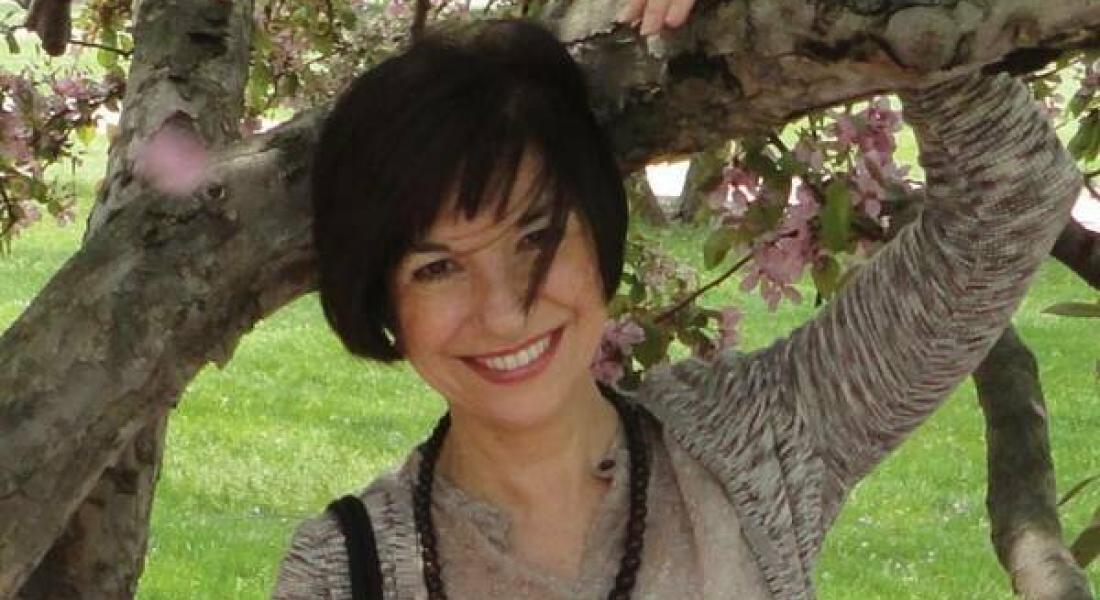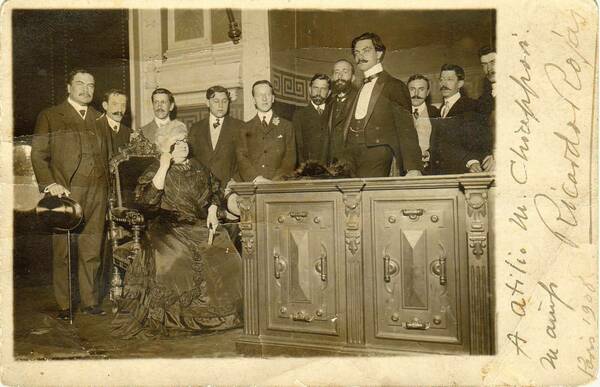
When Kellogg faculty fellow María Rosa Olivera-Williams was four years old, she would memorize the poems she had heard her mother read aloud.
This early love of literature blossomed Olivera-William’s career in Latin American literature and cultural studies and, ultimately, her research on Nicaraguan writer Rubén Darío, which has now received significant support from the National Endowment for the Humanities.
“Of course, I didn't understand what the words meant, but the whole thing, it was beautiful so I remember knowing them by heart,” said Olivera-Williams, a professor in Notre Dame’s Department of Romance Languages and Literatures. “Then I discovered how impossible that a little kid or high school-aged kid would know all of the depths. So my love of literature started with Darío.”
Hailed by some scholars as the “father of modernismo,” Darío transformed poetry in the Spanish-speaking world that became relevant across Latin American and Spanish societies. Its literary impact is comparable to one of America’s most beloved stories.
“In American literature, Mark Twain's Adventures of Huckleberry Finn is held up as a kind of novel to which all other American fiction can be traced,” Olivera-Williams said. “In Spanish-language poetry, that same considerable distinction is held by Darío.”
A defender of Latin American spiritualism, Darío spoke out against America’s materialism that many U.S.-based Latino citizens resonate with to this day. His lesser-known journalistic essays were published in hundreds of newspapers and journals throughout the world and helped shape leaders’ attitudes on many topics.
But, over time, some of his work became lost in translation.
“His journalistic work has often been overlooked, mischaracterized, or poorly and incompletely edited,” Olivera-Williams said.
Olivera-Williams is remedying erroneous adaptations of Darío’s journalistic work by dissecting four volumes of his essays — specifically Los Raros (The Strange Ones, 1896 and 1905), España contemporánea (Contemporary Spain, 1901), Opiniones (Opinions, 1906), and Parisiana (Parisian 1907) — with her research effort, “Rubén Darío: Critical Editions Project.”
 The project, led by Olivera-Williams along with a team of scholars from the US, England, and Argentina, recently won an NEH Scholarly Editions and Translations grant. The money will allow her to continue compiling, analyzing, and publicizing Darío’s work.
The project, led by Olivera-Williams along with a team of scholars from the US, England, and Argentina, recently won an NEH Scholarly Editions and Translations grant. The money will allow her to continue compiling, analyzing, and publicizing Darío’s work.
“I am super happy that Notre Dame is going to be associated with Darío forever,” said Olivera-Williams, who is also a faculty fellow of the Nanovic Institute for European Studies. “In a way, this project was born many years ago without me being conscious that it was going to flourish into this wonderful project.”
The project relies on the Alfonso Vijil Private Collection on Rubén Darío, a collection of over 1,700 pieces acquired by the University in 2008 and housed in the Hesburgh Library. The collection is considered the “most complete private collection of Darío-related documents in the world,” Olivera-Williams said.
The endeavor previously received support from the Institute for Scholarship in the Liberal Arts’ Interdisciplinary Research Seed Grant to host a 2021 virtual workshop called “Rubén Darío in the US: Translation Challenges,” in which scholars discussed recovering Darío’s widespread work and the challenges translating it into English entails.
It has also earned a grant from the Research and Scholarship Program to hold a symposium of experts in Latin American literary studies, comparative literature, popular culture, and translation studies to discuss research on Darío’s poetry and prose. The discussions will be held on November 2 and 3 at Notre Dame.
With the NEH grant, Olivera-Williams’ team will continue to highlight any misattributions and misprints, add insightful annotations, and provide critical analysis of previously archived versions of Darío’s work that continue to have influential cultural effects.
The breakdown of his work will also make Darío’s essays more accessible not only to Latin American scholars, but to the general American public as well.
For Olivera-Williams, receiving the grant is about more than support for her research – it reflects the NEH’s commitment to preserving important creative works from diverse voices.
“The NEH is fostering the value of diversity upon which the US was founded by helping recognize and preserve the cultural heritage of a major constituency that has been sidelined from the way the story of America has been told,” she said. “The lingering influence of Darío's oeuvre among the non-academic US-based Latinx community today cannot be overstated.”
This story originally appeared at al.nd.edu.
The Kellogg Institute for International Studies, part of the Keough School of Global Affairs at the University of Notre Dame, is an interdisciplinary community of scholars and students from across the University and around the globe that promotes research, provides educational opportunities, and builds partnerships throughout the world on the themes of global democracy and integral human development.





